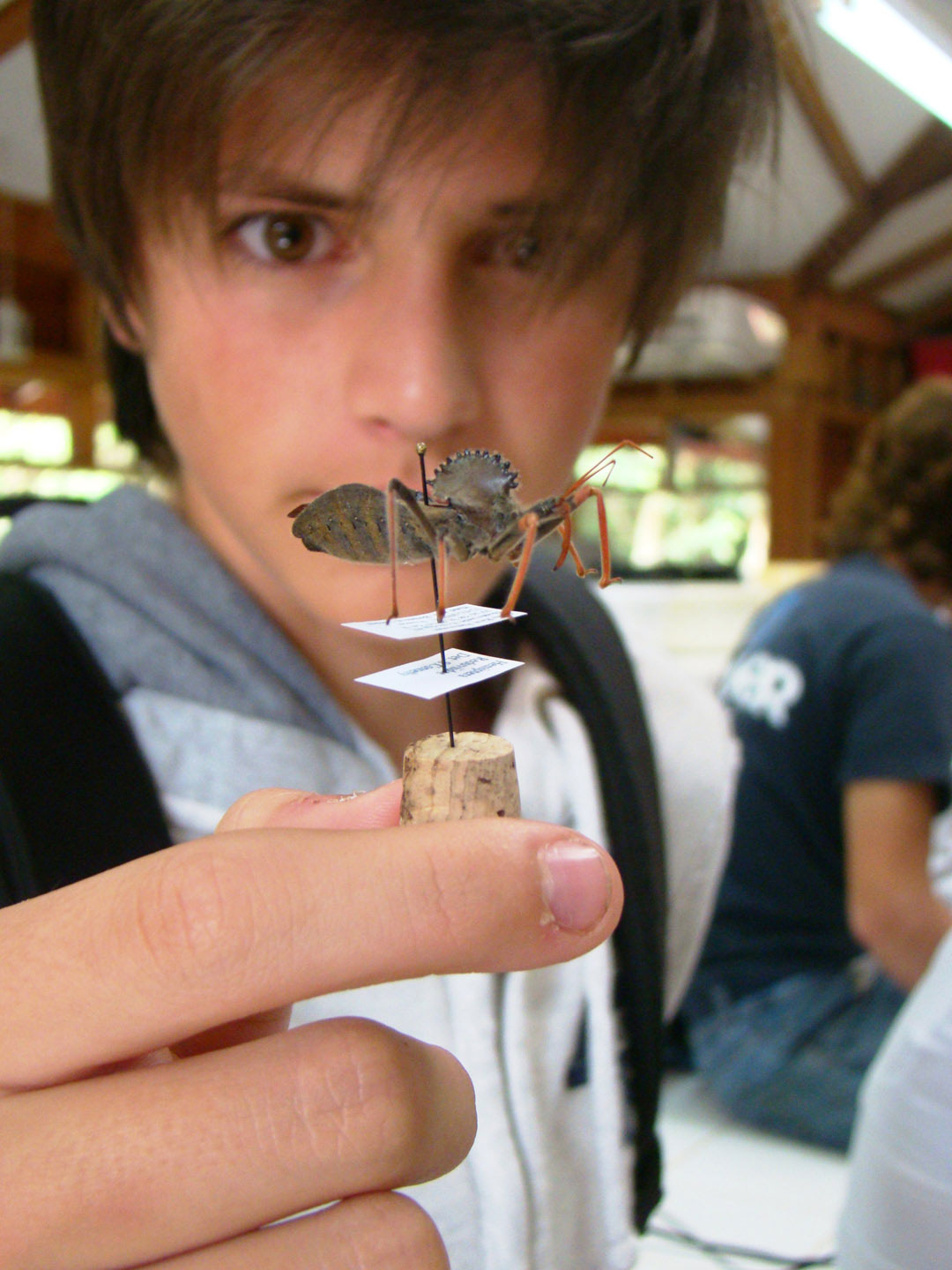Eco-tourism is a burgeoning business in many parts of the world, an open door to exploring an environment that is nearly in balance with its human cohabitants. Linking this exploration to higher education creates opportunities for combining research and instruction in these pristine environments.
The UGA facility in San Luis, Costa Rica, formally known as the University of Georgia Ecolodge San Luis and Research Station, presents the university with opportunities to expand its already formidable study-abroad program. Engineering students in this unique learning environment benefit from exposure to a variety of academic and cultural perspectives, but also experience their intersections with the many factors that impinge on design and problem solving around the world.
Third-year biological engineering major Erik Jarrett recently returned from Costa Rica, where he spent the entire fall semester at the Ecolodge. For him, the program’s focus on ecological research was matched by the self-discovery that came from living in and around the rainforest.
“I viewed the program as a way to learn how to learn, to learn how to see from new perspectives,” he says.
Dale Threadgill, director of UGA’s Faculty of Engineering, visited Ecolodge San Luis in mid-December. He sees this program as an opportunity for engineering to take part in study abroad.
“With the programs in Oxford and Cortona focused more on the liberal arts than the sciences, you really don’t think of engineering in regard to study abroad,” he says. “This past semester in San Luis, there were students from art to engineering involved, so study abroad might not be such a novelty for engineers, at least not at UGA.”
At the request of Mark Lusk, associate provost for international affairs, Threadgill and another engineering faculty member visited San Luis to provide professional expertise about the design of an environmentally sensitive wastewater treatment system at the Ecolodge. Such an opportunity fits with the emphasis on integrated ecological engineering at the university, joining the resources of ecology, engineering, and environmental design.
“The Ecolodge Research Station represents a teaching opportunity for all disciplines associated with international development-particularly engineering,” says Lusk. “Having worked on dozens of engineering projects for the World Bank and A.I.D., I’ve learned how critical engineering fields are to the development of successful resource-management systems.”
Research at the Ecolodge creates a learning laboratory, where students can gain practical experience in a course uniquely suited to a location.
The designs under consideration for a sustainable wastewater treatment system will also allow for the possibility of conducting research into the efficacy of various treatment options in the cloud-forest climate around the lodge, according to lead designer Matt Smith, associate professor of biological and agricultural engineering at the UGA campus in Tifton. The plan is to install three primary types of treatment systems: free water surface, subsurface flow constructed wetlands and facultative lagoons.
“It’s not often that we get the chance to install multiple treatment units in parallel so that we can truly compare their performance-full scale-side by side,” Smith says. This opportunity for research also makes the facility a demonstration site, both for the residents of the local villages and for the students.
Back in Athens, Erik Jarrett is still absorbing the lessons of his semester in Costa Rica. He says the experience solidified his decision to enlist in the Peace Corps after graduation, and has added perspective to his engineering education and where he would like it to take him.
“Coming back, I feel a little more connected with the world,” he says.


